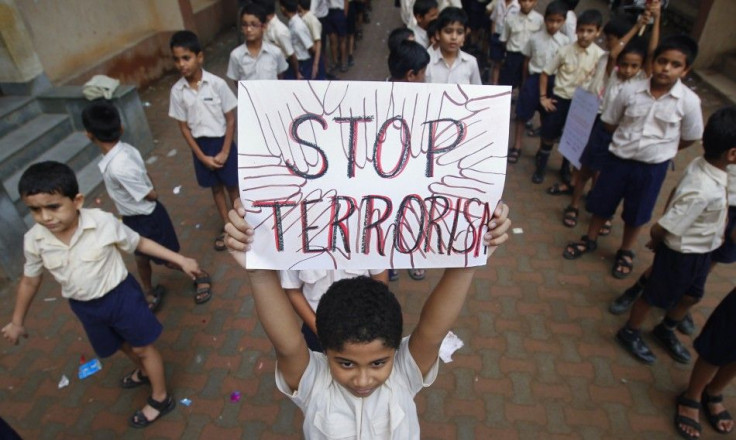Pakistan Militant Saeed Rejects U.S. Terrorist Designation

Hafiz Saeed, the chief of the Pakistani militant group Jamaat-ud-Dawa (JuD), has denied accusations by the United States that he is a terrorist.
Blamed by India for carrying out the terrorist attacks in December 2008 in Mumbai, India, which killed about 170 people, Saeed now has a $10 million price tag on his head as a result of a bounty put out by the U.S. government.
Lashkar-e-Taiba (LeT), which has been designated as a terrorist organization by the U.S. since December 2001, is believed to be the military wing of JuD. India believes that LeT was directly responsible for the Mumbai attacks.
The website for the U.S. State Department's “Rewards for Justice” program said about Saeed that he is a “founding member of Jamaat-ud-Dawa, a radical Deobandi Islamist organization dedicated to installing Islamist rule over parts of India and Pakistan, and its military branch.”
After the Mumbai attacks, Saeed and other LeT members were arrested by Pakistani police, but later released on appeal.
Ajmal Kasab, the Mumbai gunman who has been sentenced to death by an Indian court, said Saeed planned the attack. Kasab was the only one of ten suspected gunmen who survived the 2008 attacks.
However, Saeed told Al-Jazeera that the U.S. is retaliating for his support of keeping NATO supply routes to Afghanistan closed. (Pakistan had closed those routes late last year after U.S. and NATO missile attacks killed about two dozen Pakistani soldiers).
We are not hiding in caves for bounties to be set on finding us, Saeed said.
I think the U.S. is frustrated because we are taking out countrywide protests against the resumption of NATO supplies and drone strikes.”
Saeed added: I believe either the U.S. has very little knowledge and is basing its decisions on wrong information being provided by India, or they are just frustrated.
In response to Kasab's charges, Saeed claimed to9 al-Jazeera he has no connection with him.
I have never seen or heard of Ajmal Kassab, he said. I heard about him through the media after the Mumbai attacks. We have no links with him and it has been proven in the courts. All the proof that was provided by India was taken up by courts in Pakistan. A Lahore high court's full bench exonerated me and then the supreme court gave a judgment in my favor.
Meanwhile, Wendy Sherman, the U.S. Under Secretary of State, who is currently on a visit to India, said her government has also placed a $2 million bounty on Saeed’s brother-in-law and deputy, Abdul Rahman Makki.
Meanwhile, India praised the U.S, decisions on Saeed.
[The bounty] sends a strong signal to Lashkar-e-Taiba as also its members and patrons that the international community remains united in combating terrorism, Syed Akbaruddin, spokesman for India's ministry of external affairs, said on Twitter.
Al Jazeera also reported that Saeed is a popular figure in Pakistan, having undertaken some humanitarian efforts on the country, particular after the earthquake in Kashmir and floods in Pakistan.
Sreeram Chaulia, a professor at India's Jindal School of International Affairs, told Agence France Presse that Saeed is linked to Pakistan’s spy agencies.
The Pakistan establishment will not hand him over for the bounty, and any private citizen who tries to make cash through tipping off the Americans will be targeted, Chaulia said.
I don't think extradition is any possibility.
© Copyright IBTimes 2025. All rights reserved.



















